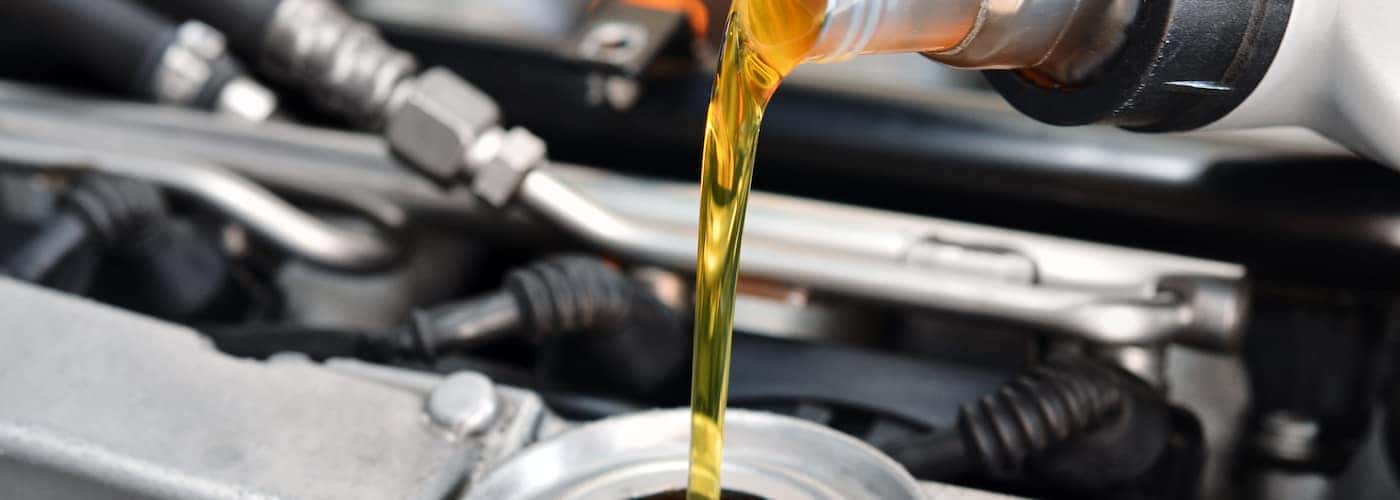Optimize Your Vehicle'S Efficiency With Regular Oil Modifications
Maintaining your automobile's efficiency is a complex venture, with routine oil modifications standing out as an important component. Fresh engine oil plays a crucial role in guaranteeing optimal lubrication, reducing rubbing, and stopping wear on crucial parts. Numerous motorists ignore the indicators that show a demand for an oil modification, possibly jeopardizing their car's durability.
Significance of Regular Oil Changes
While many car proprietors might ignore the relevance of routine oil changes, neglecting this crucial upkeep job can result in severe consequences for engine efficiency and durability. Engine oil plays an important role in lubing moving parts, decreasing friction, and protecting against getting too hot. Gradually, oil weakens due to direct exposure to warm and contaminants, which lessens its efficiency.
Stopping working to change the oil routinely can result in the build-up of sludge and debris, which can obstruct crucial engine components and bring about boosted wear. This not only endangers engine effectiveness but can likewise result in pricey repair work or perhaps overall engine failing. Additionally, old oil loses its ability to neutralize acids produced throughout combustion, which can cause corrosion and more damage.
Moreover, numerous automobile suppliers recommend particular oil modification periods, usually based on mileage or time. In summary, routine oil modifications are not simply a pointer; they are an important component of accountable automobile upkeep that shields the engine and boosts total performance.
Benefits of Fresh Oil
Transforming to fresh oil uses many advantages that directly enhance engine performance and performance. New oil lowers rubbing in between engine elements, which not only minimizes wear yet additionally adds to smoother operation.
Additionally, fresh oil effectively cleanses the engine by putting on hold pollutants and avoiding sludge buildup. With time, oil comes to be polluted with dirt, steel bits, and combustion byproducts. Consistently changing oil guarantees that these hazardous substances are gotten rid of, promoting a cleaner and healthier engine setting.
Furthermore, fresh oil aids in optimum temperature regulation. It dissipates warm better, protecting against overheating and possible damages to engine components. This is specifically essential throughout peak efficiency circumstances, where warmth build-up can harm engine performance.
Signs Your Oil Requirements Changing
Engine oil is the lifeblood of your vehicle, and identifying when it needs transforming is important for keeping optimal efficiency - Oil Change Lockhart. Numerous signs suggest that it's time for an oil adjustment, and staying vigilant can stop engine damages and costly repair services
First, check the color and consistency of the oil. Fresh oil is commonly amber and smooth, while old oil might appear dark and gritty, suggesting contamination and lowered effectiveness. A modification in thickness can additionally signify that the oil has damaged down and is no more properly lubing engine parts.

An site web additional warning sign is the oil modification light on your control panel. This sharp offers as a reminder that the oil has reached its lifespan or that there is an underlying problem requiring focus. In addition, uncommon engine sounds, such as knocking or ticking, may suggest insufficient lubrication due to degraded oil.
Last but not least, if you notice oil areas or puddles under your car, it may suggest a leakage that requires instant assessment and feasible oil adjustment. Being mindful to these indications will certainly guarantee your engine runs smoothly and successfully.
Picking the Right Oil
Picking the ideal oil for your vehicle is vital for ensuring optimal efficiency and long life. Engine oils can be found in numerous kinds and thickness, each created to satisfy certain demands. The first factor to consider should be the manufacturer's recommendations, which can usually be found in the proprietor's manual. This support will certainly route you towards the right viscosity grade, such as 5W-30 or 10W-40, which shows the oil's density at different temperatures.
Next, consider the kind of oil: traditional, artificial, or a mix. Conventional oil is read the article originated from crude oil and is suitable for older lorries, while synthetic oil offers premium security and efficiency for contemporary engines, especially under severe conditions. Artificial blends combine the advantages of both and are frequently a cost-effective choice.
Additionally, try to find oils that meet sector standards, such as API (American Petroleum Institute) or ACEA (Organization des Constructeurs Européens d'Automobiles) certifications. These indications guarantee that the oil has actually been tested for high quality and efficiency. Eventually, picking the best oil not just enhances engine effectiveness yet likewise adds to the overall health and wellness of your lorry, paving the means for smoother driving experiences.
Oil Change Frequency Recommendations

Variables influencing oil change regularity include driving problems, such as stop-and-go traffic, severe temperatures, and pulling heavy lots. Under severe problems, it might be sensible to change the oil a lot more frequently to protect against engine wear. Furthermore, some modern-day cars come outfitted with oil life monitoring systems that give customized referrals based on driving routines, which can further enhance the oil adjustment routine.
It's critical to consult your owner's handbook for specific suggestions customized to your vehicle. Adhering to these standards not just maintains engine health however likewise boosts fuel effectiveness and lowers emissions. Finally, normal oil changes, timed properly based upon numerous variables, are a fundamental aspect of car maintenance that can considerably influence efficiency and longevity.
Conclusion
